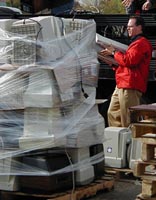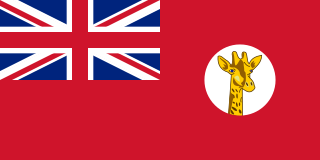This article needs additional citations for verification .(October 2007) (Learn how and when to remove this template message) |

Computers for African Schools is a charity based in the United Kingdom which aims to give children in developing African countries the opportunitiy to gain experience with and understanding of computers and IT. As of the end of 2011 CFAS had sent 30,000 computer systems to five main CFAS programme countries: Zambia (11,500), Zimbabwe (7,500), Malawi (5,500), Tanzania (900), and Zanzibar (800); and smaller quantities (4000 in total) have also been donated to partner NGO's in Kenya, Mozambique, South Africa, Gambia, Egypt, Ghana, Sierra Leone, Niger, Ethiopia and Liberia. More than 1500 schools have computer labs set up through the scheme. Every state and mission secondary school in Zambia has been provided with at least 10 computers through the scheme.

The United Kingdom of Great Britain and Northern Ireland, commonly known as the United Kingdom (UK) or Britain, is a sovereign country located off the northwestern coast of the European mainland. The United Kingdom includes the island of Great Britain, the northeastern part of the island of Ireland, and many smaller islands. Northern Ireland is the only part of the United Kingdom that shares a land border with another sovereign state, the Republic of Ireland. Apart from this land border, the United Kingdom is surrounded by the Atlantic Ocean, with the North Sea to the east, the English Channel to the south and the Celtic Sea to the south-west, giving it the 12th-longest coastline in the world. The Irish Sea separates Great Britain and Ireland. The United Kingdom's 242,500 square kilometres (93,600 sq mi) were home to an estimated 66.0 million inhabitants in 2017.

Zambia, officially the Republic of Zambia, is a landlocked country in south-central Africa. Its neighbors are the Democratic Republic of the Congo to the north, Tanzania to the north-east, Malawi to the east, Mozambique to the southeast, Zimbabwe and Botswana to the south, Namibia to the southwest, and Angola to the west. The capital city is Lusaka, located in the south-central part of Zambia. The population is concentrated mainly around Lusaka in the south and the Copperbelt Province to the northwest, the core economic hubs of the country.

Zimbabwe, officially the Republic of Zimbabwe, is a landlocked country located in southern Africa, between the Zambezi and Limpopo Rivers, bordered by South Africa, Botswana, Zambia and Mozambique. The capital and largest city is Harare and the second largest being Bulawayo. A country of roughly 16 million people, Zimbabwe has 16 official languages, with English, Shona, and Ndebele the most commonly used.
Contents
The computers are donated free to the schools and two teachers from each recipient school are trained to teach IT as a subject. The programmes in the CFAS scheme recipient countries are administered by local administering NGOs (Computers for Zambian Schools, Computers for Malawian Schools, Computers for Zimbabwean Schools, Computers for Tanzanian Schools and Computers for Zanzibar Schools, respectively.)
The organisation is listed by the umbrella resource Digital Dividend. [1]
The computers are recycled from redundant hardware donated by businesses and other organisations in the UK. Currently, nothing less than a Pentium IV specification is used. CFAS works in close collaboration with IT Schools Africa and the computers are refurbished by ITSA using volunteers who make sure that the computers are checked, parts are replaced if necessary and hard drives are wiped to UK Ministry of Defence standards. The majority of the computers are refurbished by prisoners in a range of prisons throughout England as part of rehabilitation training. Once in Africa, through agreement with Microsoft, Windows operating system and Office is installed.
When donated computers reach the end of their life or are found to be unserviceable, the local CFAS administering NGO collects them from the schools and they are shipped to a recycling plant in Johannesburg run by DESCO. DESCO has a zero land fill policy and all materials are recycled.
It is the long-term aim of CFAS to enable every state secondary pupil in the recipient countries to have access to computer lessons and to ensure the sustainability of the scheme.
As of the end of 2011, the Computers for African Scheme is now wholly administered and carried out by IT Schools Africa.









